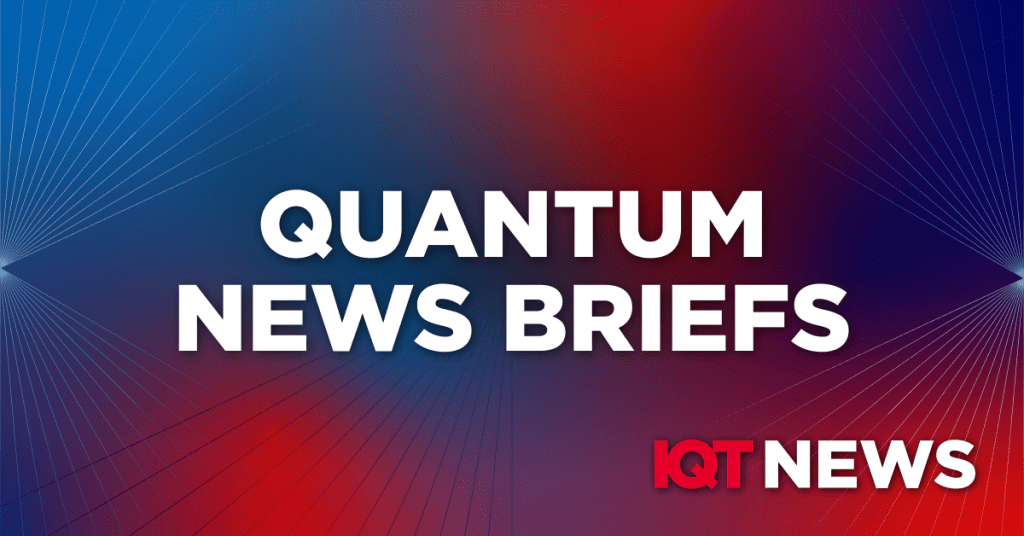Quantum News Briefs: Press release summaries below:
Rigetti Computing Reports 1st Quarter 2024 Financial Results
Rigetti Computing, Inc. (Nasdaq: RGTI), a leading developer of quantum-classical computing systems, reported its first-quarter financial results for 2024, revealing total revenues of $3.1 million and a net loss of $20.8 million. Despite the significant operating loss of $16.6 million, the company successfully raised $32.9 million through share sales, boosting its cash reserves to $102.8 million. Rigetti achieved a 99.3% median 2-qubit gate fidelity with its 9-qubit Ankaa-class system, instilling confidence in the upcoming 84-qubit Ankaa-3 system. Additionally, Rigetti expanded its market presence by selling a Novera Quantum Processing Unit (QPU) to Horizon Quantum Computing in Singapore, marking its first on-premises QPU installation in the region. The company also launched the Novera QPU Partner Program to foster a robust on-premises quantum computing ecosystem.
New Updates to US Trade “Blacklist” target Chinese Quantum Tech
The U.S. Commerce Department has escalated tensions in the ongoing technology dispute between the United States and China by adding 37 Chinese entities to the Entity List under the Export Administration Regulations (EAR), focusing on firms engaged in quantum technology and associated with a recent spy balloon incident. This move significantly restricts these entities from accessing American resources, with 22 directly linked to China’s state-run quantum computing initiatives. The additions reflect heightened U.S. concerns over the potential military applications of quantum computing, as emphasized by Commerce Secretary Gina Raimondo in a recent Congressional address. Additionally, the Disruptive Technology Strike Force, a collaborative effort between the Commerce Department and the Department of Justice, has been instrumental in enforcing these restrictions, aiming to prevent the misappropriation of U.S. technology in Chinese military advancements, including drones and surveillance programs. This development marks a significant step in the ongoing “Chip War” amidst contrasting opinions on trade relations with China within the U.S. administration.
New quantum experiment sheds light on perplexing high-temperature superconductors
In a recent advancement reported in Science, researchers have made significant strides in understanding the origins of high-temperature superconductivity in cuprates, a material that has puzzled scientists since its discovery in 1986. The team, led by Shiwei Zhang from the Flatiron Institute’s Center for Computational Quantum Physics, utilized the two-dimensional Hubbard model, enhancing it to include diagonal electron movements akin to chess bishops. This adjustment, supported by extensive simulations, successfully replicated key aspects of cuprate superconductivity, demonstrating that even simple models can capture complex physical phenomena. This research not only sheds light on the peculiar behavior of cuprates, which superconduct at much higher temperatures than traditional superconductors but also underscores the potential of advanced computational techniques in unraveling the complexities of quantum materials without solely relying on quantum computing.
In Other News: IoT World Today article: “Deloitte Aids World Economic Forum on Quantum: Q&A”
According to a recent IoT World Today article, the World Economic Forum (WEF), in collaboration with IBM and SandboxAQ, released its Quantum Economy Blueprint earlier this year to guide organizations and governments in developing robust quantum strategies as the technology nears broader adoption. Scott Buchholz, Deloitte’s global lead for quantum computing, played a key advisory role, drawing on extensive experience with quantum projects to shape the blueprint’s recommendations. The document emphasizes the urgent need for a coordinated global approach to quantum computing development and underscores the strategic importance of national investments to maintain competitive advantages. Deloitte’s contributions were instrumental in defining practical use cases and readiness strategies for quantum technologies, highlighting the potential quantum computing holds in transforming various sectors and addressing complex societal challenges.
In Other News: Yahoo News article: “Bitcoin encryption could be broken by futuristic quantum computers, researchers predict”
According to a recent Yahoo News article, researchers have projected that quantum computers capable of decrypting Bitcoin’s encryption will eventually be feasible with technological advancements. The study, led by Mark Webber from the University of Sussex, estimated that 30 million to 300 million physical qubits would be necessary for such a quantum computer to break Bitcoin’s elliptic curve digital signature algorithm. Advanced quantum computers possess only about 50 to 100 qubits, indicating that Bitcoin remains secure against quantum attacks for the time being. However, continuous improvements in quantum computing technology, particularly in enhancing qubit quality and operation rates, could lower these requirements in the future. The research highlights the need for Bitcoin and similar technologies to consider transitioning to quantum-secure encryption methods to preempt future vulnerabilities.
